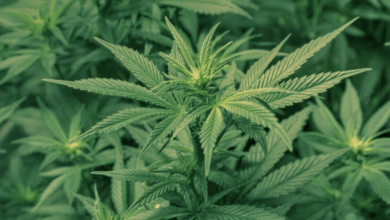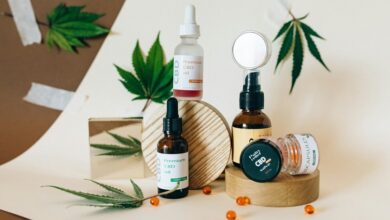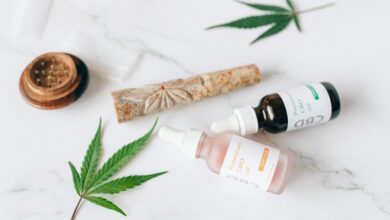Does Cbd Show Up.On Drug Test

The question of whether CBD shows up on drug tests is complex. While CBD itself is not typically a target, trace amounts of THC in some products can lead to positive results. Understanding the differences between CBD and THC is crucial, as well as the mechanisms of drug testing. To navigate this landscape effectively, users must consider various factors that influence test outcomes. What should users know to make informed choices?
Understanding CBD and THC: Key Differences
Cannabidiol (CBD) and tetrahydrocannabinol (THC) are two of the most prominent compounds found in cannabis plants, each with distinct properties and effects.
CBD effects typically include relaxation and pain relief without psychoactive impacts.
In contrast, THC legality varies by jurisdiction due to its psychoactive nature.
Understanding these differences is crucial for individuals navigating cannabis use and its legal implications.
How Drug Tests Work: What They Detect
Drug tests are designed to detect specific substances in a person's system, primarily focusing on compounds that indicate recent use of drugs.
Various drug testing methods, such as urine, blood, and hair tests, target detection substances like THC, opioids, and other illicit drugs.
Understanding these methods helps individuals navigate the implications of substance use and their potential impact on personal freedom.
Factors Influencing Drug Test Results for CBD Users
Although many users turn to CBD for its potential therapeutic benefits, several factors can influence the outcome of drug tests for those individuals.
Variations in CBD extraction methods can result in differing THC concentrations, impacting test results.
Additionally, the sensitivity of drug tests can determine whether trace amounts of THC are detected, potentially leading to false positives for users of CBD products.
Tips for CBD Users to Navigate Drug Testing Concerns
When considering the use of CBD, individuals should be aware of strategies to mitigate potential conflicts with drug testing protocols.
Prioritizing CBD safety involves selecting products labeled as THC-free and confirming third-party lab testing.
Additionally, users should inform employers about their CBD use and consider timing their doses to minimize detection risks.
These testing strategies can help maintain compliance while enjoying the benefits of CBD.
Conclusion
In conclusion, while CBD itself is not typically a target for drug tests, the presence of trace THC in some products can lead to unexpected outcomes. Are users truly aware of the potential risks associated with their CBD choices? To avoid complications, it is crucial for individuals to select high-quality, third-party tested CBD products that are THC-free, especially in environments where drug testing is prevalent. Awareness and informed choices are vital for responsible CBD use.






